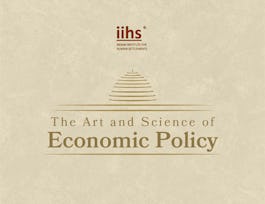Energy issues have always been important in international relations, but in recent years may have become even more important than in the past due to the widespread awareness of existing limits to energy sources and negative climate impacts. The course discusses global trends in energy consumption and production, various available scenarios for potential developments in the coming decades, the availability of oil reserves and the evolution of the oil industry. It then discusses natural gas and highlights the differences between oil and gas. It will also discuss renewable energy sources, nuclear energy and EU energy policy.

Give your career the gift of Coursera Plus with $160 off, billed annually. Save today.


Politics and Economics of International Energy

Instructor: Giacomo Luciani
74,310 already enrolled
Included with 
(1,802 reviews)
Details to know

Add to your LinkedIn profile
8 assignments
See how employees at top companies are mastering in-demand skills


Earn a career certificate
Add this credential to your LinkedIn profile, resume, or CV
Share it on social media and in your performance review

There are 8 modules in this course
This module presents the Introduction to global energy consumption, Energy scenarios, Energy transition and poverty
What's included
10 videos4 readings1 assignment1 discussion prompt
What's included
11 videos5 readings1 assignment1 discussion prompt
This module presents the Introduction to renewable energy, Types of renewable energy, Renewable energy integration, Energy efficiency
What's included
12 videos7 readings1 assignment1 discussion prompt
This module presents the Introduction to oil formation and exploration, Oil extraction methods, Environmental management in oil production
What's included
21 videos4 readings1 assignment1 discussion prompt
This module presents the Introduction to natural gas, The international gas market, New gas developments
What's included
12 videos4 readings1 assignment1 discussion prompt
This module presents the Introduction to Nuclear Energy, Nuclear Energy for electricity generation, Safety of Nuclear Energy
What's included
8 videos2 readings1 assignment1 discussion prompt
What's included
8 videos4 readings1 assignment1 discussion prompt
What's included
6 videos3 readings1 assignment1 discussion prompt
Instructor

Offered by
Recommended if you're interested in Economics

Indian Institute for Human Settlements

EDHEC Business School

Duke University

University of Colorado Boulder
Why people choose Coursera for their career




Learner reviews
Showing 3 of 1802
1,802 reviews
- 5 stars
78.71%
- 4 stars
18.56%
- 3 stars
1.60%
- 2 stars
0.49%
- 1 star
0.60%

Open new doors with Coursera Plus
Unlimited access to 7,000+ world-class courses, hands-on projects, and job-ready certificate programs - all included in your subscription
Advance your career with an online degree
Earn a degree from world-class universities - 100% online
Join over 3,400 global companies that choose Coursera for Business
Upskill your employees to excel in the digital economy
Frequently asked questions
Access to lectures and assignments depends on your type of enrollment. If you take a course in audit mode, you will be able to see most course materials for free. To access graded assignments and to earn a Certificate, you will need to purchase the Certificate experience, during or after your audit. If you don't see the audit option:
The course may not offer an audit option. You can try a Free Trial instead, or apply for Financial Aid.
The course may offer 'Full Course, No Certificate' instead. This option lets you see all course materials, submit required assessments, and get a final grade. This also means that you will not be able to purchase a Certificate experience.
When you purchase a Certificate you get access to all course materials, including graded assignments. Upon completing the course, your electronic Certificate will be added to your Accomplishments page - from there, you can print your Certificate or add it to your LinkedIn profile. If you only want to read and view the course content, you can audit the course for free.
You will be eligible for a full refund until two weeks after your payment date, or (for courses that have just launched) until two weeks after the first session of the course begins, whichever is later. You cannot receive a refund once you’ve earned a Course Certificate, even if you complete the course within the two-week refund period. See our full refund policy.

